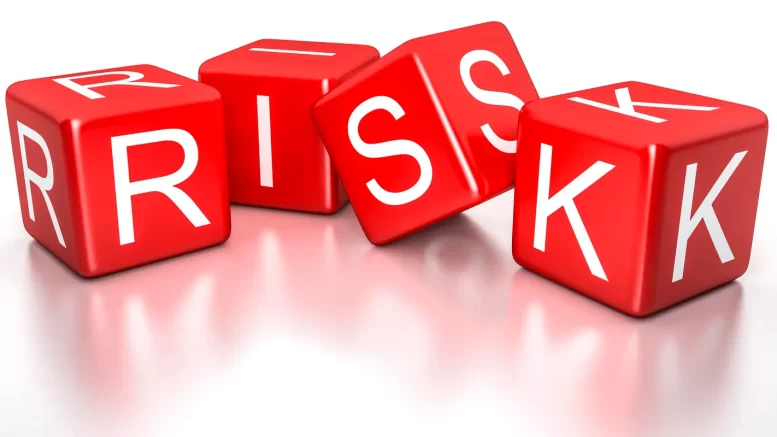My daughter who works in communications at a leading global financial institution recently had a conversation with a senior leader there. Among the topics they covered was risk. One of the worst things he’s seen over the years, he said, is when people don’t take risks—in their day-to-day jobs, careers and in life.
For the most part, risk is good. It requires stepping out of one’s comfort zone and trying something new or challenging. Risk is associated with stimulating creativity and innovation, boosting confidence and motivation, and increasing knowledge. Taking risks elevates problem-solving skills and helps develop new ones. To be a risk-taker is to be willing to disrupt the status quo.
Of course, risk also comes with potential consequence like feelings of uncertainty about the process or the outcome of something new, and anxiety about the unknown or unfamiliar. When a risk goes pear-shaped, there is disappointment and outright failure.
There are many case studies of companies that took leaps of faith that paid off and those that didn’t. Still, there is enough evidence to suggest that the greatest risk in business and in life is not taking one. I share here a piece I read a few years ago about why getting good at risk is the key to success.
Risk in brand communications and reputation
Companies operating in regulated industries – like pharmaceuticals, consumer healthcare, banking, insurance—are generally characterised as risk-averse. There are teams of lawyers and regulatory advisors to ensure compliance with the letter of the law. We never recommend taking risks that skirt legal guidelines. That said, it is possible to reach beyond the standard set of executions to do something different (and therefore sometimes considered ‘risky’). Indeed, companies routinely ask us to think ‘out of the box.’
Being creative doesn’t necessarily carry real ‘risk.’ But it does ask people to consider something new. Lean in another direction. Become knowledgeable enough about alternative platform or topics to try them.
Two examples
A few years ago, we put together a popular podcast series featuring scientists from a biotech company. The series put R&D leaders and their teams front and center, as the series was also widely promoted in earned, paid and social media. At the time, podcasting was a platform the company had never considered or explored. After the success on the podcast platform, the company progressed to TikTok – a channel that hadn’t yet been widely used by the biopharma industry.
While the risks to doing the podcast series were minimal, we did comprehensive due diligence in advance. Legal and regulatory reviews were built into the process at all points so there were no surprises in the content and all participants could breathe easier exploring a new medium, and then feeling emboldened to try another.
On the reputation side, I like to look for risk-inspiration to Absolut Vodka, a brand my jacobstahl partner, Jeremy Jacob, supported for many years. Absolut was the first big brand to commit to and pursue the LGBTQ+ market and the first continuously present brand in what was then referred to as “gay” media. At the time, this was a substantial risk, though a supportable one given the loudest potential protesters were unlikely to go after alcohol and cigarette brands.
Since then, companies and brands supporting the LGBTQ+ communities are numerous and Pride campaigns are ubiquitous. But the benefits to the Absolut brand reputation at the beginning and throughout the years are innumerable. Absolut has maintained its commitment, and accordingly, has a number of milestones to its credit (e.g., the first to put the Pride flag on its bottle).
A check list
When charged with thinking ‘out of the box’ or developing innovative ideas that might cross over into taking a risk, here is a starter check list to consider:
- Is the potentially risky idea or alliance you’re proposing authentic to the brand or the company? Is there a backstory that explains the ‘why’ the company is entering this space?
- Due diligence! This includes doing the research deep dive, including sentiment analysis and cost-effectiveness to support taking the risk. AI tools can help here.
- Consider whether wading into new waters could upset any of your stakeholders. Sometimes companies court a new target audience at the risk of alienating core customers. Backlash can be swift and lasting. Look no further than the Bud Light initiative last year.
- Scenario plan: Consider the pros and cons. Explore all possible outcomes, map them as comprehensively as possible.
- Avoid falling in love with taking a risk that needs too much explanation, can’t be sufficiently researched, and/or can’t be brought to life realistically or cost effectively.
Without doubt, risk is relative. When an idea considered to be a risk is evidence-based, well-researched and the benefits are clear, the bigger risk is not exploring it at all.
The views and opinions published here belong to the author and do not necessarily reflect the views and opinions of the publisher.



Be the first to comment on "About Risk"